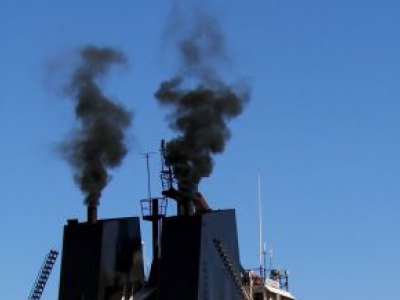ECSA’s proposal
Members of the European Parliament’s Environment, Public Health and Food Safety(ENVI) Committee agreed last week on a compromise position on the monitoring, reporting and verification (MRV) of CO2 emissions from maritime transport, which lays the foundation for a global measure to reduce CO2 emissions from international shipping.
Shipping being a truly global industry, regional legislation often runs the risk of reducing the competitiveness of the European maritime transport sector in this fast-moving and volatile globalised environment. The need for measures adopted and enforced at international level is therefore essential for the preservation of the EU’s competitive edge.
The compromise position adopted by the European Parliament essentially enlarges the scope of the initial Commission proposal for an EU law on the matter. According to the European Parliament, the MRV system should not only monitor CO2 but also Nitrogen Oxyde emissions.
What is more, the European Parliament also supports the inclusion of smaller ships in the system by lowering the threshold of 5000 GT (gross tonnage) to 400 GT.
However, by doing so, the EU might actually undermine its own efforts to pave the way for an agreement at the International Maritime Organisation (IMO).
“We realize that the position taken by the European Parliament is a basis for negotiation with the Council of Ministers” said Patrick Verhoeven , ECSA Secretary General. “We are however concerned about several of the contents, namely the inclusion of other emissionsand the lowered threshold to 400GT, which might prove to be an obstacle for a speedy agreement at IMO level”.
“EU Member States have however given a clear political signal that any solution to curb global CO2 emissions must result from an international agreement at IMO level” added Mr. Verhoeven, referring to a joint submission to the next IMO Marine Environment Protection Committee, made by the EU Member States and the European Commission, which proposes the key elements for a system to collect data on CO2 emissions and energy efficiency of ships.
|
ECSA has issued a position paper including a proposal for a regulation of the European Parliament and of the Council on the Monitoring, Reporting and Verification of carbon emissions from maritime transport. ECSA considers that reporting of commercially sensitive cargo information per-shipis premature. Publication of such data would in any case be unwarranted. As apotential way ahead, ECSA recommends an MRV system that solely includes theaggregated data from ships’ fuel consumption in combination with distance sailed.This combination will substantiate shipping’s advantages as the most energy efficientand environmentally friendly mode of transport and allows correlating the trends ofCO2 emissions with already available data on world trade. ECSA believes that the EU Regulation proposal has the potential to contributeto the development of a globally harmonised MRV system when taking into accountthe specificities of the shipping sector. The Commission’s proposal should thereforebe simplified and focussed in order to achieve the overall goal to collect useful data inan efficient and flexible way. The ECSA position on the MRV file is available here |
Source: ECSA
For more information on EU MRV, please read the following artilces






























































